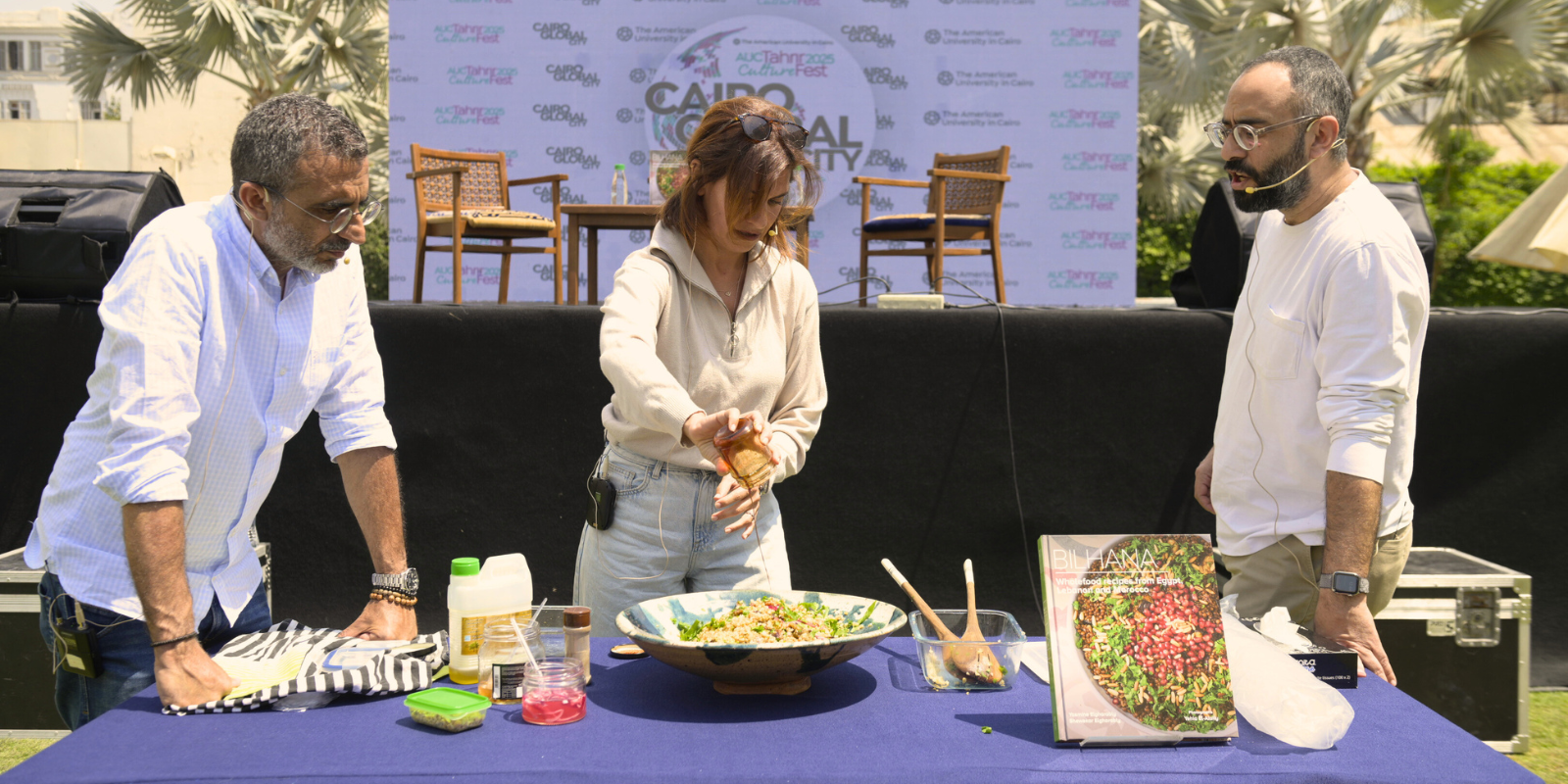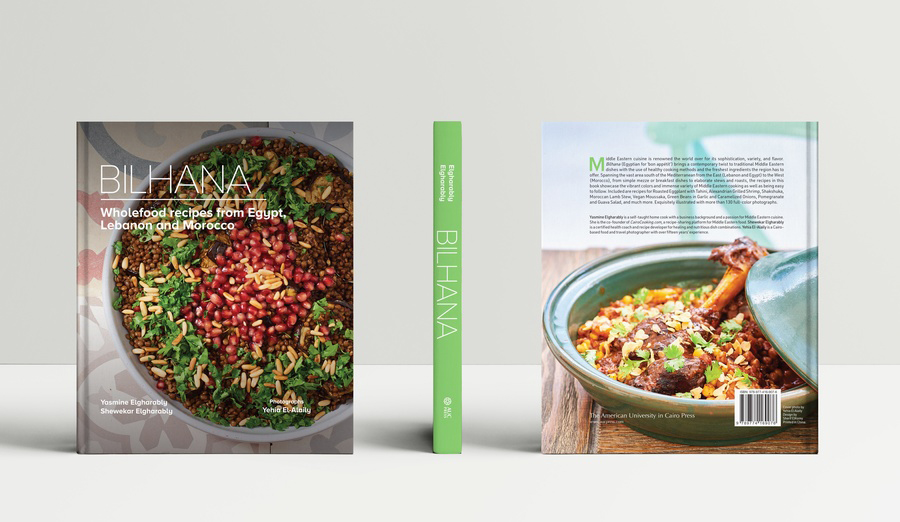
Tahrir CultureFest: Book Talk with Author and Photographer of ‘Bilhana’ Cookbook
Freekeh eggplant salad topped with pickled onions and fresh seasonal raisins, all coated with date molasses: This tasty snack awaited attendees of the Tahrir CultureFest on Saturday at the Bilhana book talk by AUC Press. The dish was served after author Yasmine Elgharably and food photographer Yehia El-Alaily shared tips on sustainable cooking and behind-the-scenes details on publishing the book.
“From ideation to completion, it took around five years [to produce],” Elgharably said. Assembling the book — which Elgharably calls her passion project — was no simple task, from waiting for ingredients to come into season to conducting lengthy photoshoots to revising recipes with the board.
“Someone from New Zealand recently sent me a picture of something they cooked from the book — just wow, wow, wow.”
“[We] wanted the book to be global so it would apply to anyone, anywhere in the world,” said Elgharably. At the same time, the pair wanted the book to be rooted in Egyptian culture. “We made sure our spices are there, our herbs are there.”
Much consideration was given not just to the ingredients, but to the content that made the final page — including the page itself. “One thing is the printing paper, and I’ve seen several… this one lasts in the kitchen,” El-Alaily said. As the book’s photographer, he pushed hard to allow a photograph alongside each recipe, a move that ultimately set the colorful book apart.
The pair also discussed the zero-waste production of the book. “When you attend commercial shoots, you see the massive waste happening on set,” El-Alaily said. Instead, “we just properly made one [of each plate] and took our time.” The book’s first two pages, which feature a picture of an empty plate, acknowledge this. “Every shot here was [of food] that was ultimately eaten; somebody enjoyed this in reality,” said moderator and chef Wesam Masoud.
Backdrop items were also given serious consideration, with a battle brewing between Elgharably’s maximalist idea and El-Alaily’s minimalist vision. “I need only the plate,” said El-Alaily, while Elgharably joked that “an Egyptian dining table is not empty.”
For the materials that did make the cut, such as plates and cutlery, the pair stayed true to their zero-waste mission, keeping the shoots plastic-free and sourcing the pottery locally, from Fayoum.
“[We] wanted the book to be global so it would apply to anyone, anywhere in the world."
In an exclusive interview with News@AUC, Elgharably said, “Having the AUC Press editorial team structure the production for us made a huge difference. They provided a full editor from the west, so we got the perspective of target markets outside the region.” This helped with writing recipes and choosing ingredients, she said.
Elgharably also praised AUC Press’s distribution after the book came to life. “We got to be in the international press and podcasts. This would not have been possible if AUC’s distribution was not that strong, especially in the U.S.”
AUC Press Director Tom Willshire said, “Establishing a line of cookbooks about Egypt really fits into our mission because it’s fun but also very cultural.”
Now, Elgharably regularly receives messages from the United States and Australia. “Someone from New Zealand recently sent me a picture of something they cooked from the book,” she shared. “Just wow, wow, wow.”

